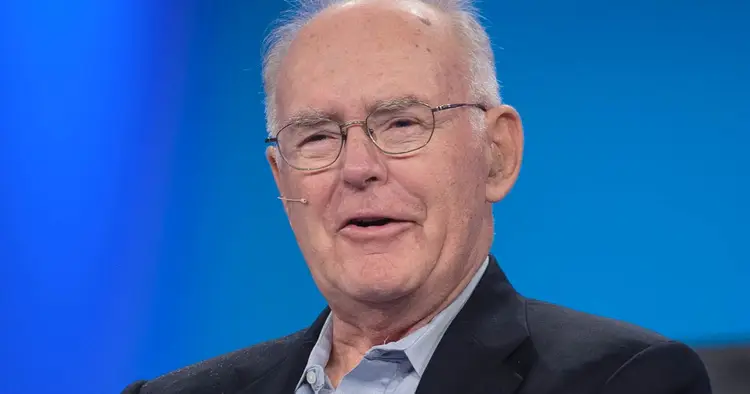Gordon Moore, the Co-Founder of Intel and Famous for Moore's Law, Passes Away at the Age of 94.

Gordon Moore, one of the co-founders of Intel, passed away on Friday at the age of 94. He was famously known for "Moore's Law," which became a significant driving force in the world of computer and electronics manufacturing.
Intel's CEO, Pat Gelsinger, stated in a press release that Moore had significant influence on the tech industry through his understanding and foresight. He played a pivotal role in uncovering the potential of transistors, which has motivated tech professionals and businesspersons throughout the years.
Tim Cook, the head of Apple, expressed his condolences too. He tweeted that Gordon Moore's passing was a significant loss. Moore was one of the key figures in the tech industry and played an important role in Silicon Valley's establishment. Cook acknowledged Moore's visionary leadership and his contributions to the technological revolution. He said that those who came later, including Cook himself, are indebted to Moore's pioneering work. Cook wished for peace for Moore's soul.
Back in 1965, Moore made a forecast that the quantity of transistors on a chip will increase twofold each year as the production of computer chips enhances by shrinking component sizes, resulting in a significant surge in performance and functionalities. Ten years down the line, he adjusted his statement to be every two years.
Tech companies had a desire to achieve the "law" and it created a steady pattern of creativity that continued to advance.
Genevieve Bell, an anthropologist who works for Intel, explained to CNET in 2015 that Moore's Law resulted in the invention of a device to keep musical timing called a metronome. She also stated that the law has created a belief that there is continuous improvement, which in itself is changing consistently.
This basically means that the minuscule phone you carry around has more capabilities than a bulky set of computers that used to occupy an entire room in the past.
As chip parts have recently become incredibly tiny, some people argue that Moore's Law has come to an end. However, others believe that it will continue to progress due to new production methods, such as making chips with multiple layers of silicon instead of just one.
Born in 1929, Moore was originally from San Francisco. After that, he moved on to San Jose State University, the University of California, Berkeley, and Caltech, where he spent his days studying chemistry and eventually earned his doctorate.
In the year 1957, he teamed up with Robert Noyce and other people to establish Fairchild Semiconductor. Noyce had contributed to the invention of the microchip or integrated circuit, which is crucial to the design of computer chips. This invention opened the doors for the creation of the iPhone and numerous other gadgets that we use today. In the year 1968, the duo established Intel, which grew to become the largest chipmaker in the world at that time. However, later it had to give up that position.
As time went on, Moore shifted his focus to charitable endeavors. Alongside his spouse, he created the Gordon and Betty Moore Foundation, which has provided financial assistance to initiatives concentrated on safeguarding the environment, conducting scientific investigations, and advancing tertiary education.
Moore got bestowed with the National Medal of Technology in 1990 while in 2002, he was granted the Presidential Medal of Freedom, the most elevated civilian distinction in the US.
To find out more, take a look at the article on how Moore's Law is responsible for the sleek design and affordable price of your iPhone.























































